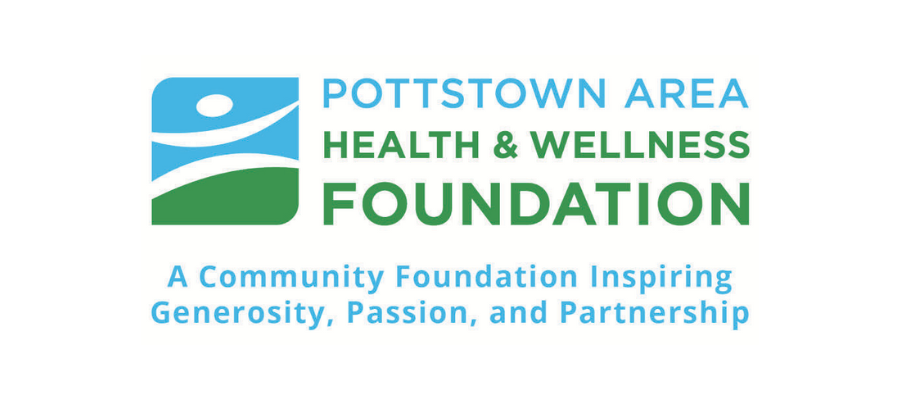Avoiding Caregiver Burnout: Practical Tips for Families
Regardless of your lifestyle, caring for dependent relatives, young and old, is often stressful and tiring. Even those who have segued gradually and willingly into caregiving for a parent or elderly companion have days when only love drives them. Pottstown Area Health & Wellness Foundation (PAHWF) shares self-care tips and practices for the family caregiver to avoid burnout.

Juggling a career, family, and household can be stressful. When a relative needs special care, particularly long-term, that stress can become severe and even chronic. It is important to pace yourself during such a time, which often varies in intensity levels and challenges. To endure, a caregiver must start with caring for oneself. Easier said than done. Here are some ideas to help refresh your mind, body, and spirit.
Eat Well
A healthful diet benefits you and your loved ones. The right foods fuel our stamina and nourish our mind. Junk food and processed meals are a quick solution but with long-term effects. You satisfied the hunger but are left feeling sluggish and bloated. Real comfort food sustains energy and reduces stressful inflammation that harms our body and mind.
Focus on large-batch meals like soups, vegetable stews, and chilis that can be frozen. Doubling recipes doesn’t take much time or effort and leaves you with meals for tiring days when prep is a struggle. Freeze single servings for when you need to feed your loved one but are unavailable. If anyone offers help, a meal is a great way to allow them to express love and concern. Homecooked food is usually healthier. When prepared by someone else, it also tends to taste better.
Burn Off Stress
Make time to get outside among nature, an easy way to reduce stress. Walk off stress and worries. Focus on your breath with each footfall. Getting in the zone is meditative and soothing to the mind. PAHWF offers fitness ideas, including local areas for exercise like biking, hiking, and running.
You likely have limited self-time as a caregiver. Multitask it with light cardio activity to release pent-up frustration, worries, and stress. Try calming yoga, if cardio is too demanding. Proactively reducing your stress level will help prevent its long-term deterioration on your own health.
Accept Help
Usually, people who offer help genuinely are concerned and want to be supportive. Caregivers commonly resist assistance, afraid or guilty to leave their charge under anyone else’s care. We often attempt super heroics and try to handle everything and everyone alone. This mentality leads to burnout and resentment.
Allow others to assist you in this emotionally heavy journey. Their fresh ideas and bright smile can benefit you and those who depend on you. As you build confidence in this trustworthy soul, you may find the responsibility is easier (and less lonely) when shared.
Consider joining a support group or online community. Discovering the trials of others can be validating and comforting. Today’s Caregiver is a helpful resource dedicated to those who dedicate care to others. The Caregiver Action Network offers support and tools for all types of caregivers, including those who maintain full-time employment and those who care from a distance.
For senior-centric educational activities and fun programming (ages 50+ years), visit TriCounty Active Adult Center. Get something on your calendar from their Current Program Schedule, for yourself or someone in your care. An activity or two may provide just the break you need
Seek Respite Care
Respite care is short-term relief for the primary caregiver. It can be arranged for just a few hours or for several days a week. This service provides a much-needed break to recharge your mind and body. You will be better able to relax and tend to personal needs—like your own doctor appointments, household chores, or even a quiet rest—with the knowledge that your loved one is in capable hands.
Indulge in Enjoyment
You can laugh and enjoy yourself even during stressful times. In fact, laughter is often the best medicine. Try a mini-vacation in the form of one of these:
- Start a new hobby. Take a dance class or learn woodworking. Mastering something new requires concentration and forces you to live in the moment. Repetitive motions also can be therapeutic, and help needed solutions arise by recharging your brain.
- Ditch web surfing for answers to your latest healthcare concern or insurance issue. Take a mental vacation and get lost in a novel, work out a puzzle, or try therapeutic coloring. Watch a funny show. Give your tired brain a rest.
- Caregivers are often deprived of quality sleep. Exhaustion can increase feelings of depression and overwhelm. Recharge whenever you can. Take a 20-minute power nap. If you cannot fall asleep, try regulated breathing that settles your body and mind into a relaxed meditative state.
- Practice or develop spiritual beliefs. Those who include some type of religion in their lifestyle are scientifically proven to be healthier. Find a way to nurture your soul. Consider introducing this to the person in your charge to help care for all aspects of their life.
- Give yourself a break. As the saying goes, “You can’t pour from an empty cup.” While you’re at it, give yourself a little chocolate, too.
